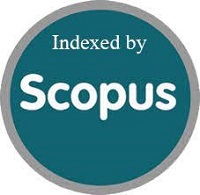Uji Validitas Konstruk Psychological Well-Being Scale Dengan Metode Confirmatory Factor Analysis (CFA)
DOI:
https://doi.org/10.15408/jp3i.v7i1.12105Keywords:
Uji validitas konstruk, psychological well-being scale, psychological well-being, confirmatory factor analysis (CFA)Abstract
Tujuan dari penelitian ini adalah untuk menguji validitas konstruk dari psychological well-being scale. Dalam penelitian ini peneliti menguji enam dimensi psychological well-being dari Ryff (1989) yaitu, self-acceptance, positive relation with others, autonomy, environmental mastery, purpose in life, dan personal growth dengan jumlah 42 item. Subjek penelitian adalah perawat pada salah satu Rumah Sakit di Jakarta Cempaka Putih yang terdiri dari 171 orang. Metode analisis data yang digunakan dalam penelitian ini adalah confirmatory factor analysis (CFA) dengan bantuan software lisrel 8.70. Berdasarkan perhitungan dengan metode CFA dapat disimpulkan bahwa semua dimensi memerlukan modifikasi model pengukuran untuk memperoleh nilai fit.
The purpose of this study is to examine construct validity from psychological well-being scale. In this study researchers tested six dimensions of psychological well-being from Ryff (1989), namely, self-acceptance, positive relations with others, autonomy, environmental mastery, purpose in life, and personal growth with a total of 42 items. The research subjects were nurses at one of the hospitals in Jakarta Cempaka Putih consisting of 171 people. The data analysis method used in this study is confirmatory factor analysis (CFA) with the help of lisrel 8.70 software. Based on calculations using the CFA method it can be concluded that all dimensions require modification of the measurement model to obtain a fit value.
References
Barret, P. (2007). Structural equation modelling: Adjudging model fit. Personality and Individual Differences, Vol.42, 815-824. doi:10.1016/j.paid.2006.09.018.
Hidalgo et.al. (2010). Chapter two: Psychological well-being assessment tools and related factors. In Ingrid E. Wells (ed). Psychological Well-Being (77-113). New York: Nova Science Publisher.
Harrington, D. (2009). Confirmatory factor analysis. Oxford: University Press
Rathi. (2011). Psychological well-being and organizational commitmnent: Exploration of the relationship. Working-Paper No. 106. India: Amrita School of Business.
Ryff, C. D., & Keyes, C. L. M. (1995). The structure of psychological well-being. Journal of Personality and Social Psychology, 69(4), 719.
Ryff, C. D. (1989). Happiness is everything, or is it? Explorations on the meaning of psychological well-being. Journal of Personality and Social Psychology, 57, 6, 1069-1081.
Umar, Jahja. (2011). Analisis faktor konfirmatorik. Bahan perkuliahan. Fakultas Psikologi. UIN Jakarta. Tidak dipublikasikan.
Vieira, Armando Luis. (2011). Interactive LISREL in practice. London: Springer.



